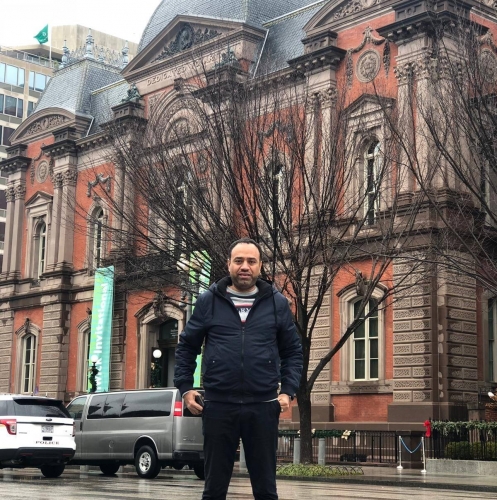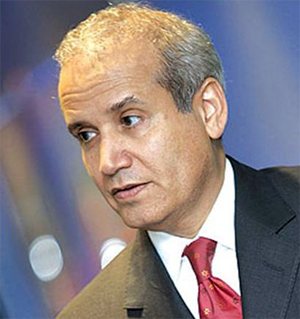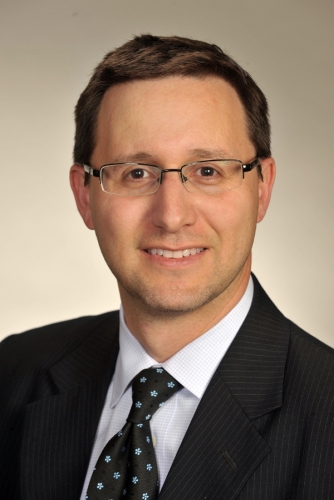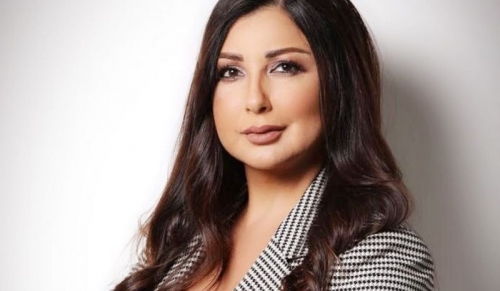"Regain Yemen" reveals the Houthis' Hidden Economy
The Houthi militia reveal a new method of plundering and looting Yemeni money, strengthening their parallel and hidden economy to ensure the money continues in their hands and prolong the war. And at the same time the Houthi militia rely on policies of impoverishment, starvation, intimidation and terrorism while their leaders allocate huge funds, especially those close or belonging to certain families.
Years ago , the Iran-backed Houthi militia created the office of "Judicial Guardian" for legal circumvention in the looting of Yemeni money and property and creating a shadow economy parallel to the state economy.
In addition to the illegal trade and foreign funding by the Houthis, they began adopting a new policy that had never been witnessed in the country, represented by the displacement of their opponents, bombing and robbery of the homes of all those who disagreed with them, and plundering of their property, confiscation and distribution of it among their leaders.
To implement these operations, in which the gains are directly attributable to the leader of the militia, Abdull Malik Al Houthi, who appointed, Saleh Musfer Al-Sha'er, AKA (Abu Yasser) to perform this dirty mission. (1)
A man of plunder and grey economy;
"Regain Yemen" reveals the bottom of Saleh Al-Sha'er (Abu Yasser):
Saleh Musfer Al-Sha'er (55), born in Razih district of Sa'ada governorate, he is number (35) in the Arab Coalition wanted list. (2)
Al-Sha'er is considered one of the most prominent financial and economic leaders in the terrorist Houthi movement. His relationship with Abdull malik Al Houthi goes back to the time of the six state's wars against the Houthi rebellion in Sa'ada.
He is considered one of the first supporters of the Houthis. When Abdull Malik Al Houthi assumed the leadership of the movement, Al-Sha'er was one of his closest associates and enjoyed great confidence from the Houthis.
Al-Sha'er was one of the arms dealers who supplied the militia with weapons, especially anti-armor weapons, and one of the most prominent people that Abdull Malik trusted financially.
This made Abdull Malik grant his close friend (Al-Sha'er), the rank of major general by a decision of the militia’s political council and appointed him to the position of Assistant Minister of Defense for Human Resources and Head of the Logistic Support Authority (the actual position of a Al-Sha'er with the militia since the movement was established), in addition to his appointment to a new position called "The judicial guardian of the funds and properties of whom they call them (traitors).(3)
Al-Sha'er was granted open powers, and in addition to his supervising the process of confining, storming and looting the homes and properties of the leaders of political parties and businessmen who were not subjugated to them. Saleh al-Shaer was entrusted with the task of appropriating and plundering the money and homes of the President of the Republic Abd Rabbo Mansour Hadi and his deputy Ali Mohsen al-Ahmar and various state leaders, as well as the leaders of the Yemeni Islah Party and the homes and properties of the martyr leader Ali Abdullah Saleh, the former president, after the militia assassinated him.
He was also granted the task of supervising Sabafon Telc, and the Saleh Social Development Foundation with all its assets, headquarters, administrative body and funds .(4) In Addition to University of Science and Technology Hospital, C-plus Hospital, Yemen Armored Company, and other companies and homes that were truly confiscated by the Houthis.
Al-Sha'er exploits his position as the "Judicial Guard" in a systematic plundering of funds, assets and property whenever it is confiscated, in addition to that he has his own unofficial secret prison to hide his opponents, to suppress citizens and those who claim their money, as well as to suppress the employees of looted companies who do not cooperate with him.
In recent times, Al-Sha'er has used his influence to carry out a process of extortion of political leaders or merchants whose lands and homes are being seized in exchange for money or forcing them to sell them to leaders of the Houthi militia at low prices, and he is responsible for operating real estate, land and looted money and investing them for the benefit of the militia and using their revenues in:
- Supporting battle fronts.
- Supporting military industrialization (especially the manufacture of missiles and drones).
- Iranian ballistic parts and missiles are assembled as being manufactured inside Yemen).
In this regard, "Regain Yemen" reveals part of secret correspondence between the Houthis and a foreign company specialized in selling military equipment, the Drone Shield Company, where the correspondence made from the email of the Houthi leader Ali Saeed Dubaisha, who is in charge of managing the Yemen Armored Company and disposing of its funds according to the attached documents also reveal the Houthi’s withdrawal of more than $2 million from the company's account after changing the board of directors and the commercial register. The documents also prove that the Houthi group is buying weapons and communicating with international companies in the name of the looted companies. Attachment (6)
- Some of the seized companies are used as cover to buy military and security equipment from abroad.
- Personal support for militia leaders.
- Establishing investment companies and institutions in real estate and fuels.
Al-Shaer controls more than 60 billion Yemeni riyals (nearly $ 100 million), in addition to the capital of the last private companies and the looted funds.
Regain Yemen obtained documents proving al-Shaer’s exploitation of looted money and private property in money laundering operations for the Houthis and the establishment of various companies, including the National Automobile Company Limited, and the establishment of new companies in the names of ordinary people under his direct management and supervision, including those working with the United Nations. (7)
As of the middle of last year, the Houthi militia confiscated billions of money seized in bank accounts and private properties owned or managed by more than 1250 people in the capital, Sana'a. All of whom opposed the Houthis under the name of "the judicial guard."(8)
"Regain Yemen" obtained documents proving Al-Sha'er’s exploitation of looted money and private property in money laundering operations for the Houthis and the establishment of various companies, including the National Automobile Company Limited, and the establishment of new companies in the names of ordinary people under his direct management and supervision, including those working with the United Nations. (7)
As of the middle of last year, the Houthi militia confiscated billions of money seized in bank accounts and private properties owned or managed by more than 1250 people in the capital, Sana'a. All of whom opposed the Houthis under the name of "the judicial guard."(8)
The militias have also seized ownership of more than 100 private companies belonging to figures opposed to the Houthis and seized billions in revenues.
Among the most important missions of Al-Sha'er:
The financial and logistical officer of the terrorist Houthi movement and supervises the investments of the leaders of the first row of the Houthi militia through:
- Establishing commercial companies that are either loyal to them or have been controlled by force, or subject their owners to a commercial partnership with them.
The Supervisor of the so-called Houthi Military Manufacturing Unit and its financing (the Missile and UAV Manufacturing Unit).
- Responsible for the logistical protection battalions, which tasks are:
- Receiving and collecting the looted items and so-called war spoils that were confiscated either from former officials or citizens who are not loyal to them.
- Protection of loot and looted money.
- Al-Sha'er uses his relatives and people loyal to him who he trusts, who have experience and qualifications as his assistants in his work, especially those who are assigned special tasks in forging official documents and transferring the property of companies and looted real estate, and then they are distributed to leaders in the Houthi militia, in particular, and from specific families.
Among the most prominent members of Saleh Al-Sha'er network are:
- Nayef Nasher Al-Hurain, Director of the office
-Abdullah Musfer Al-Sha'er, Chairman of the Board of Directors of SabaFon and Yemen Armored Company.
- Ali Saeed Dubaisha, Chairman of the board of a number of looted companies, and he is the director of security of Taiz.
- Osama Sari, Representative of the Al-sha'er for a number of companies.
- Ahmed Muhammad Al-Tayyar Al-Kabsi.
-Ala'a Al-Din Yahya Al-Mutawakel.
"Financial officials"
- Ahmed Abdullah Yahya Shams Al-Din.
- Ra'ed Hassan Musfer Al-Sha'er.
" Accountants"
- Anees Muhammad Al-Sanafi.
- Ali Ali Mufaddal, a chartered accountant
-Khaled Al-Daylami.
- Amer Al-Haddad.
- Radhwan Al-Moayad.
Judges and jurists
-Judge Abdo Ismail Hassan Rajeh, Former President of the Criminal Court.
- Judge Mujahid Ahmed Ahmed Al-Amdi, current president of the Criminal Court.
- Judge Khaled Al-Maori, Former head of the Criminal Prosecution Office.
- Judge Abdullah Zahra, the new head of the Criminal Prosecution Office.
- Judge Abdullah Al-Kumim, Former Deputy Criminal Prosecutor.
-Judge Ahmed Al-Qais, New Criminal Prosecutor.
- Muhammad Hammoud Al-Qais ,is the lawyer of the so-called" judicial guard".
-Muhammad al-Washli ,the lawyer of the so called" judicial guardian".
- Wael Al-Sharafi ,IT Technician( Hacker ).
Al-Sha'er is also linked to a group of merchants and Houthi investors and others, Attachment No. ( )
"Regain Yemen" will reveal in next reports.
Recommendations
Through the investigation of documents and a review of data carried out by the "Regain Yemen" team, it was concluded that there are money laundering operations and smuggling of weapons equipment into Yemen through those companies, with clear leniency from different countries in violation, first of all, with UN resolutions regarding the supply of weapons to the Houthis, and secondly to combat the money laundering and combating terrorist financing.
In order for there to be measures to prevent the smuggling of money and weapons into Yemen, the recommendations of combating terrorism and money laundering must be followed, "Regain Yemen" therefore recommends the following:
1- List the names contained and popularize that it is Houthi terrorists group that looted and stole civilian property by force and established fake companies with the purpose of passing financial transactions and smuggling oil and weapons to the Houthis, which encourages the Houthis to prolong the war in Yemen.
2- Establishing an international committee working to list these violations, recover the looted funds by the Houthis, and companies to their owners, and monitoring the hostilities carried out by everyone mentioned in the report.
3- Strengthening controls and oversight by the Arab Coalition and the Yemeni government in particular in the fight against money laundering and terrorist financing carried out by a large group of Iranians and Hezbollah men in Yemen through Houthi leaders.
4- Tightening control over suspicious transactions carried out by the terrorist Houthi group, and their subsidiaries, which exceed 1250 companies in all economic sectors, and informing countries of the danger of these companies and not dealing with them.
5- The Yemeni government and the Arab coalition must work to include these people on the list of personalities financing terrorism, and work to include the Houthi leaders within the international sanctions, as they violated UN Resolution 2216.
6- Demanding the Attorney General, the judicial authorities in the Yemeni government and all the competent authorities to take the necessary legal measures against the looting and robbery carried out by the Houthi group and the activities of these commercial companies and freezing any funds of these Houthi figures in Yemeni banks and elsewhere.
7- "Regain Yemen" will work with a group of experts and international legal experts and in cooperation with the relevant international institutions in order to prosecute the Houthis in international, Yemeni forums and courts, and to stop these companies from moving funds and investing in them as they are considered part of the financing of terrorism and war in Yemen.
8-Demanding the Central Bank of Yemen and the Information Collection Unit and Anti-money laundering unit to track down these funds and companies in coordination with their counterparts from the competent authorities in the countries of the Arab Coalition to pursue and track the looted funds by the Houthi militia that are used to prolong the war and in arming that terrorist gang, especially the techniques of drones and ballistic missiles that threaten the Arab Coalition and Yemen in general.





